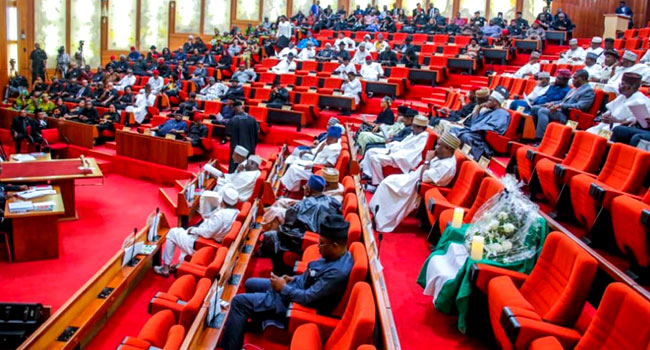The Nigerian Senate, on Thursday, May 9, approved the imposition of the death penalty for individuals convicted of drug trafficking offenses within the country.
This decision marks a departure from the previous punishment prescribed under the extant National Drug Law Enforcement Agency (NDLEA) Act, which stipulated a maximum sentence of life imprisonment for such offenses.
The Senate’s resolution to amend the NDLEA Act came following its careful consideration of a comprehensive report presented by the Committees on Judiciary, Human Rights and Legal Matters, and Drugs and Narcotics.
Senator Mohammed Monguno, representing APC-Borno North and Chairman of the Committee on Judiciary, Human Rights & Legal Matters, delivered the report during the plenary session.
The amendment bill, which successfully passed its third reading, encompasses several key objectives, including updating the list of dangerous drugs, enhancing the operational capacity of the NDLEA, revising penalties, and facilitating the establishment of laboratories to support drug enforcement efforts.
A notable alteration introduced by the bill involves Section 11 of the current act, which previously prescribed life imprisonment for offenses related to the importation, manufacture, production, processing, planting, or growth of drugs such as cocaine, LSD, heroin, or similar substances.
This section has now been amended to impose a stiffer penalty of death for individuals found guilty of such crimes.
It is worth mentioning that although the committee’s report did not originally propose the imposition of the death penalty, Senator Ali Ndume, during the consideration stage, proposed the upgrade of the punishment from life imprisonment to the death penalty.
Following a clause-by-clause examination of the bill, Deputy Senate President Barau Jibrin, presiding over the session, called for a voice vote on the amendment regarding the death penalty, ultimately ruling in favor of its adoption.
However, dissent arose from Senator Adams Oshiomhole, who objected to the ruling, contending that matters of life and death should not be hastily decided.
Despite his objection, Barau maintained that the opportunity for a division had lapsed after his initial ruling, thereby upholding the decision to pass the bill with the death penalty provision.
In light of the Senate’s approval, the amended bill was formally read for the third time and subsequently passed, signaling a significant shift in the country’s approach to combating drug trafficking offenses.



